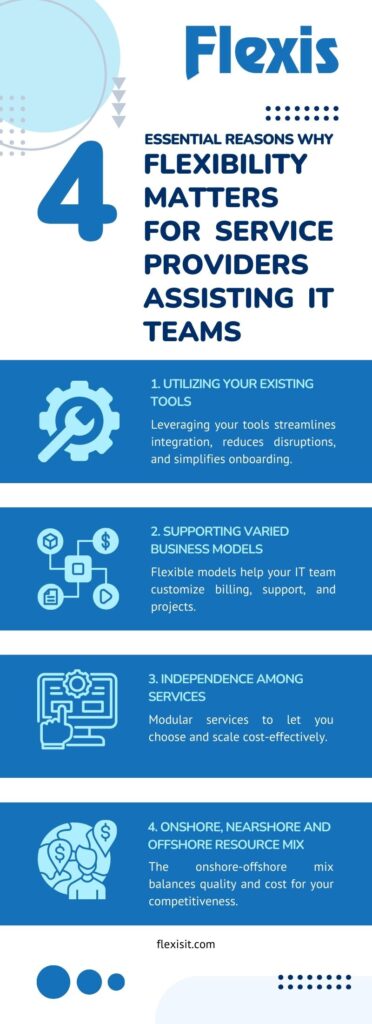
The Importance of Flexibility For Service Providers Supporting IT Teams
For businesses looking for support in delivering their IT managed services, flexibility is crucial to meeting your diverse needs and requirements. Each business has unique requirements, and tailoring services to fit those needs enhances satisfaction and enables you to deliver more effective services to your customers. Here’s a closer look at some important ways that flexibility in service offerings enables service providers to build stronger partnerships and boost the success of the customers they support.
1. Utilizing Your Existing Tools
Most IT service teams have invested significant time and resources into their chosen Remote Monitoring and Management (RMM) and ticketing tools. By leveraging these existing tools, service providers can seamlessly integrate with your established workflows, minimizing disruptions and streamlining operations. Working within the existing framework reduces the need for additional training, making onboarding smoother for both sides and enabling faster issue resolution.
2. Supporting Varied Business Models
IT service teams often have different billing structures depending on their client preferences and service types. Flexibility in support models allows service providers to offer a range of solutions, such as:
- Help Desk Services: Providing a flexible help desk that accommodates both incident-based and per-user billing models ensures you can choose the approach that aligns with your customers’ needs and budgets.
- Dedicated Engineers: For teams requiring consistent support and hands-on control, having dedicated engineers who act as an extension of the current team offers valuable scalability. With full management control over these resources, you can ensure alignment with your workflows and client expectations.
- Project Hours: Sometimes, IT teams need support with specialized projects. Providing a pool of hours for project work, leveraging a range of expertise—networking, server/virtualization, database, and desktop—allows you to access specialized skills without long-term commitments.
3. Independence Among Services
Flexibility extends to independence among different service offerings such as NOC, SOC, and Help Desk. This modular approach allows IT teams to select only the services they need, without being tied to a bundled package that includes services they may not require. Offering NOC, SOC, and Help Desk as standalone services means you can scale according to client demand, making service adoption more cost-effective and tailored to your unique needs.
4. Onshore, Nearshore and Offshore Resource Mix

IT Service Teams
need service provider partners who can adapt to their changing demands
Conclusion
In a rapidly evolving market, IT service teams need partners who can adapt to their changing demands. The ability to support existing tools, accommodate various business models, and provide modular services positions flexible service providers as trusted partners who can drive your growth and resilience.
Disclaimer: This post is for informational purposes only. Always consider your specific needs and consult with a professional to determine the best backup management strategy for your organization.


